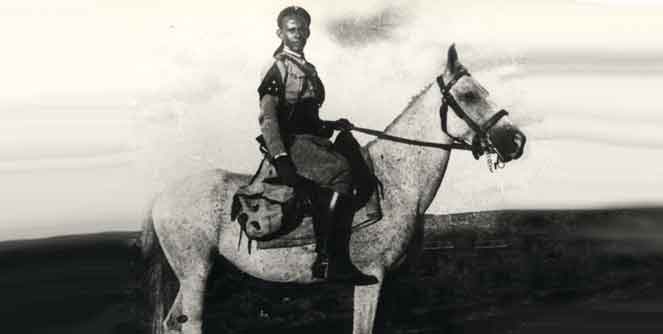Plagiarism And Quotation Marks
 On Dec. 14, 2010, Mr. Goitom Emam, in an article which appeared at harnnet.org, (EPDP’s official website), accused one of our columnists, Amanuel Hidrat, of plagiarism. Amanuel has explained his position in his article of today, Dec. 29, 2010.
On Dec. 14, 2010, Mr. Goitom Emam, in an article which appeared at harnnet.org, (EPDP’s official website), accused one of our columnists, Amanuel Hidrat, of plagiarism. Amanuel has explained his position in his article of today, Dec. 29, 2010.
Some writers have an understanding contrary to our understanding of plagiarism. We have informed Amanuel that our editorial board doesn’t agree with his understanding of plagiarism and we have asked him to follow conventional referencing and quotations when he includes materials from other sources. Amanuel recognizes his mistake and writes, “…I should have quoted the paraphrased Lijhart’s concept by Rupensinghe.” We have known Amanuel Hidrat for a long time, and we remain convinced that his mistake was bad citation and not outright plagiarism.
Amanuel Hidrat’s mistake is not unique: Eritrean literature (including articles in official newspapers and cyberspace) is really full of sloppy citations which may or may not rise to the level of outright plagiarism. The difference between sloppy citation and plagiarism is intent: one is an oversight, and the other is willful attempt to mislead. We do not think Amanuel is guilty of willful intent anymore than we think EPDP is with “The Meaning of Democracy”, a serialized lecture now running to Part 10 on Harnnet.org.
Though the EPDP has put a disclaimer on top of the series, all the disclaimer tells us is that they have consulted various resources for the series–not that they have lifted information word for word from other sources. We believe that borrowing always requires citation or, alternatively, posting the entire article in the name of the source without quotes. But “stuff happens.”
We mention EPDP, because Goitom Emam’s article condemning Amanuel Hidrat appeared right next to “The Meaning Of Democracy” series. Sloppy writing is something that we should all strive to avoid, and remind each other gently for correction simply because the sin of that issue, like the sin of “borrowing” other forms of art, is unknown in Eritrea. It is not right to make it yet another political football in our endless partisan campaigns to vilify people whose viewpoints are different from ours. Here are some examples of content without proper citation or quotation marks authored by EPDP and which appeared at harnnet.org right next to Goitom Emam’s condemnation of plagiarism:
harnnet Material: http://www.harnnet.org/index.php/articles-corner/english-articles/1133-understanding-democracy-part-9
Original Material: http://www.ug.ru/old/civicold/framework/list.htm
| EPDP | Original | Notes |
| 12. Forms of Political Systems other than Democracy | 2. Classification of forms of political systems other than democracy. | Subtitle slightly modified: forms instead of classification. |
| A number of political systems exist, or have existed, which rely upon these foundations and justifications or upon combinations of them. Aspects of these forms of political systems may also appear in existing functioning democratic systems. In some cases, this mixture may strengthen or moderate the democratic form of government and in other cases they may contradict its justification or undermine its foundation. | A number of political systems exist, or have existed, which rely upon the foundations and justifications (described above) or upon combinations of them. Aspects of these forms of political systems may also appear in existing functioning democratic systems. In some cases, this mixture may strengthen or moderate the democratic form of government and other cases they may contradict and undermine its foundation. | 100% plagiarism with only minute word insertion or modification |
| A.Monarchy “This is Rule of the one”- is usually represented by a single individual (called king, queen, czar, emperor, chief, emir or other title, implying hierarchical pre-eminence). Monarchy is based upon the principle that the people have a unity and commonality that can be personified by a single ruler. That ruler is obligated to have the best interests of the community at heart. One of the attributes of monarchy, especially hereditary monarchy, is that the monarch represents the community over time. Several types of monarchy have existed…. | a. Monarchy (“rule of the one”) is usually represented by a single individual (called king, queen, czar, emperor, chief, emir or other title, implying hierarchical preeminence). Monarchy is based upon the principle that the people have a unity and commonality that can be personified by a single ruler. That ruler is obligated to have the best interests of the community at heart. One of the attributes of monarchy, especially hereditary monarchy, is that the monarch represents the community over time. Several types of monarchy have existed… | 100% plagiarism. |
| B. Aristocracy | c. Aristocracy | |
| It is the rule of the few who are considered to have the wisdom, knowledge, and character to act on behalf of the fundamental interests of a society as a whole. Historically, the authority of the aristocrat has been based on merit arising from the cultivation of intellect and character which develops a deep seated concern for the well-being of the community and a capacity to ascertain it and act on the behalf of the common good. In this regard, the aristocracy may devote a particular solicitude for the weakest members of the society. Classically conceived, an aristocracy is composed of the “best” members of society or the “elect” who rule for the public good, and not just in their own interest. | is the rule of the few who are understood to have the wisdom, knowledge, and character to act on behalf of the fundamental interests of a society as a whole. Historically, the authority of the aristocrat has been based on merit arising from the cultivation of intellect and character which develops a deep seated concern for the well-being of the community and a capacity to ascertain it and act on the behalf of the common good. In this regard, the aristocracy may devote a particular solicitude for the weakest members of the society. Classically conceived, an aristocracy is composed of the “best” members of society or the “elect” who rule for the public good, and not just in their own interest. | 100% plagiarism. |
| C. Oligarchyis the rule by a small number of persons relative to the population, who rule in the interests of themselves or their class, rather than for the common good. They may claim, however, that the interests of their class are equivalent to the interests of the country. In times of crisis, in the absence of an effective, duly constituted authority, a small group may assume power claiming a capacity to restore and maintain order. | e. Oligarchyis rule by a small number of persons who rule in the interests of themselves or their class rather than for the common good. They may claim that the interests of their class are equivalent to the interests of the country. In times of crisis, in the absence of an effective, duly constituted authority, a small group may assume power claiming a capacity to restore and maintain order. | Slight word changes here and there but basically wholesale plagiarism. |
| D. AuthoritarianIn these cases authority, the legitimate use of power, gives way to a system that is focused on command, decisiveness, and obedience… | f. Authoritarian In these cases authority, the legitimate use of power, gives way to a system which is focused on command, decisiveness, and obedience… | 100%plagiarism |
| F. Totalitarian…systems in which the entire range of human activity is subject to government direction and control. Society is conceived of ideally as a complete unity where individuality and deviation from a comprehensive ideology must be suppressed as a way of defending against threats to social order. | g. Totalitarian systems…systems in which the entire range of human activity is subject to government direction and control. Society is conceived of ideally as a complete unity where individuality and deviation from a comprehensive ideology must be suppressed as a way of defending against threats to social order | 100% plagiarism but they deserve credit for some originality in the subtitle where they took away “systems” |




Awate Forum